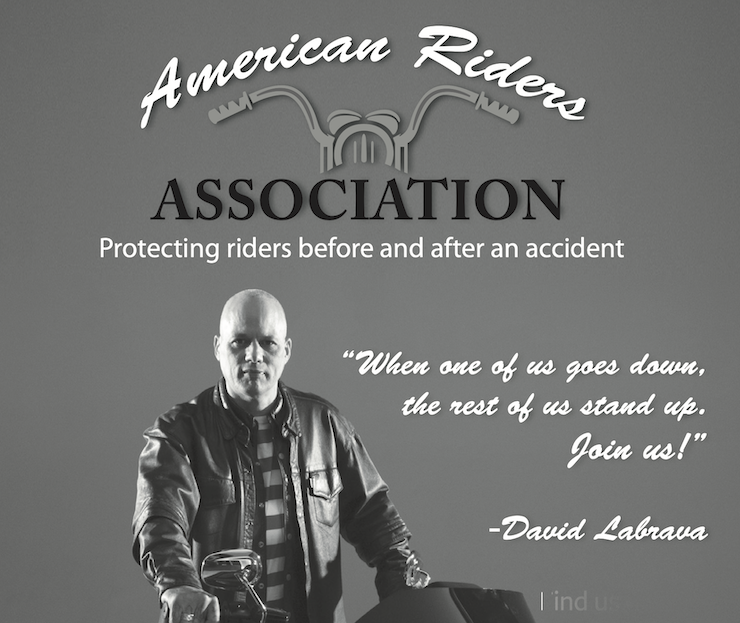Many riders choose to finance their rides – having a loan can make an expensive motorcycle or auto purchase possible. But there are issues to consider when you choose to borrow money to buy a vehicle.
To start – if you have a loan on your motorcycle, your lender will require that you purchase an insurance policy that includes optional physical damage coverage to pay for damage to the bike. This includes damage from accidents or vehicle upset (collisions) or other claims such as fire, theft, vandalism, falling objects like hail or trees, flooding, and animal collisions (comprehensive damage.) It makes sense the lender would require you to insure the collateral – they want to be sure that you have an incentive to continue paying their money back, and if you default on the loan they have something of value to repossess. If the bike is totaled, and you don’t have insurance to replace it, you have no incentive to continue paying the loan. (Other than the negative impact on your credit rating!)
Many vehicle owners want these benefits anyway – to protect the investment made in a large purchase. But this can be an issue for some. For example, a younger operator with a not so stellar driving record buying a sport bike might have serious sticker shock over the cost of a policy including Comprehensive and Collision benefits. Their insurance rates can be so expensive that they might like the option to forgo these items. But if they have a loan – they’re stuck. (Refer back to the advice I give again and again – call for an insurance quote BEFORE you buy a bike to avoid such issues!) We’ve had cases where a young rider bought a $5000 bike with a loan, and paid more in insurance in just two years than the purchase price of the bike!. They may have been better off to save up a bit, buy a few year old model, pay cash, and forgo the loan altogether.
Lenders not only require that you purchase physical damage benefits on your insurance policy, they must to be listed on the policy as an “additional insured” and “loss payee.” What does that mean? It means the insurance company sends proof coverage and notifies the lender if the insurance policy cancels for any reason. It also requires the insurance company to list the lender on checks issued to pay damages after a claim. Why? It ensures that any damages to the vehicle are repaired – so the lender still has valuable collateral on the loan, and ensures that the rider does not pocket the cash – and stop making loan payments for a vehicle that no longer exists or is not in running condition. Failure to list the lender on your policy and send them proof of your insurance can lead to having “forced place” insurance added to your loan.
Forced place insurance is a fancy term for an insurance policy, obtained by the lender that protects their interest in the collateral vehicle. It does not provide any benefits to the vehicle owner – such as liability benefits required by law to have a vehicle on the road, medical coverages or uninsured motorist benefits. Lenders don’t really want to be in the vehicle insurance business, so the cost for “forced” coverage is quite high – encouraging you to obtain insurance through a regular motorcycle insurance company. If you find that “forced place” insurance has been added to your loan, you can get it removed by sending proof of your existing policy to the lender (and making sure your insurance agent adds the loan to your policy details) or obtaining insurance immediately and sending proof.
If you receive a letter from your lender asking for insurance verification, act immediately! The lender wants their name and address listed a specific way and mailed to a specific address. It is generally not the same address you send your loan payments to. It’s helpful to provide a copy of this request letter to your agent, to be sure the lender is listed EXACTLY as they wish, and provide current phone, email, or fax numbers to send the proof of insurance documents. Failure to act will result in the “forced place” insurance added to your loan, and a significant increase in your loan payments.
A final note -The communication between your motorcycle lender and the insurance company is a one way street. The insurer sends proof of your insurance coverage to the lender – but the lender shares no details of your loan with the agent or company. Many customers assume the lender will notify the insurance company when the loan is paid off, but that NEVER happens. Once you mail your final payment to your lender and get the clear vehicle title, the lender closes the file and never glances at it again. We get calls from customers saying “I paid off that loan years ago, and they’re still on my policy!” Well – you never called to TELL US you paid off that loan. We have no way of knowing when a loan is paid off unless we are notified by the customer, so it’s up to you to call and let your insurance company know. And if at this time you want to remove Collision and Comprehensive benefits from your policy to lower your costs, you are free to do so. BUT – you can keep them on the policy if you wish!
Failure to remove a loan from your insurance information after pay-off is not a huge deal – until you have a claim. Remember when I mentioned that claim payments are made out to the rider AND their lender? So if you’ve not let your insurance company know the loan was paid off, and you then have a claim, the claims checks are written out to both you and a lender you no longer have a file with. It adds an extra step and a delay in the claims payment process when you have to gather proof that the loan is paid off to get a check reissued to you alone.
So the long and the short of it is – if you have a loan, notify your agent or company so the loan details can be listed on your policy. And when that sweet day arrives that you pay the loan off – call your agency or company to let them know and get the lender information removed.
Karen Diehl operates Diehl Insurance with husband Eric. They agency specializes in motorcycle insurance for motorcycles and collector cars in Ohio, Kentucky and Indiana.













